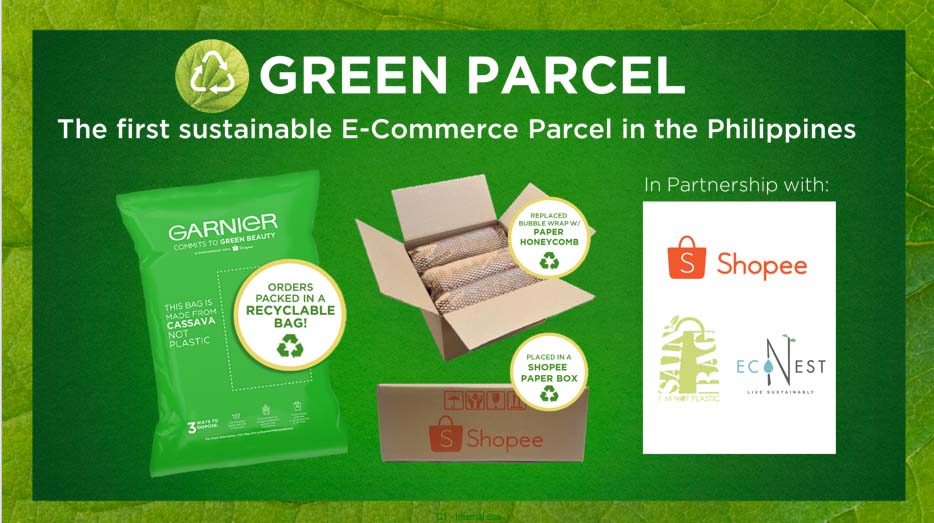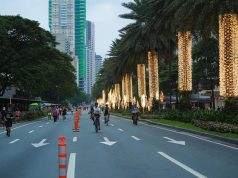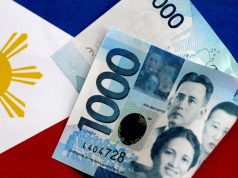Cosmetic brand Garnier Philippines recently launched “Green Beauty,” an end-to-end approach to sustainability in beauty retail aimed at reducing its environmental impact at every stage of the value chain from education, purchasing and recycling.
The initiative is part of L’Oréal Group’s global sustainability targets geared towards fighting climate change, sustainable water management, respecting biodiversity and the preservation of natural resources.
“Our constant search for innovation and reinvention of consumer experience fuels us at Garnier to lead the change in creating a sustainable world of beauty. By assessing how we work and the key areas of our value chain where we can find more sustainable alternatives, we can create a positive impact on the environment and give our consumers a better and more holistic beauty experience,” Isabel Falco, marketing director of Garnier and L’Oréal Paris Philippines said.
New packaging
As part of its commitment to practice sustainability and becoming environment-friendly, Garnier partnered with e-commerce platform Shopee, Sain Bags and Econest to become the first beauty brand to launch sustainable e-commerce packaging.

With these partnerships, each purchase from the official store of the brand on the online shopping platform will be specially packed using eco-friendly sources and materials. The packaging is made of honeycomb, cassava starch and other biodegradable materials in a bid to reduce the overall packaging footprint.
EcoNest Philippines and Garnier’s partnered for the use of Geami honeycomb protective packaging solution which is its alternative to bubble wraps.
“The patented 3D die-cut paper is made from FSC certified virgin kraft paper with an interleaf tissue that provides excellent surface protection to prevent possible damages and abrasion when wrapping and handling parcels. The recycling rate of paper at 85.6% greatly outweighs the recycling rate of plastics at 42%,” the brand said.
The brand said the honeycomb material takes two to six weeks to biodegrade in nature. However, it is also fully renewable.
On the other hand, the brand’s partnership with SainBags, is for the usage of packaging made from cassava starch and other materials from renewable resources.
The cassava packaging is biodegradable and compostable, leaving no toxic residues and causing no damage to our oceans, waterways, land and is harmless to animals and plants.
Garnier said it can safely return to nature in the form of H2O and CO2, and in turn feeds our agriculture, making it part of a truly sustainable lifecycle. It also assured consumers that it does not contain a trace of plastic, therefore, does not contribute to the micro-plastics problem and takes around 90 days to compost in soil or a body of water, as opposed to hundreds of years for a regular PE bag.
Ruoshan Tao, head of marketing of Shopee Philippines, said the e-commerce platform is glad to partner with L’Oreal Group on this transformative journey, citing that it is their first partnership with a brand.
Tan is bullish on the impacts of these green practices.
“We hope that their global thrust will kickstart a new culture of sustainability in beauty retail and e-tail that will inspire real change across industries. Shopee will provide our utmost support to make this Green Beauty campaign meaningful and successful,” Tao said.
“With the delivery of every Green Parcel, we also hope to inspire consumers in The Philippines to start thinking about how they can play a role in sustainability, and collectively raise awareness on this important issue,” she added.
The packaging shift was deemed timely with the growth of e-commerce industry during the first few months of community quarantine in the Philippines.
READ: Amid rise of social commerce in Southeast Asia, live-selling in Philippines thrives
Garnier said it takes great responsibility in providing consumers with sustainable choices, in hopes to inspire others to act with them.
Aside from the eco-friendly packaging, the beauty brand ensured that its products now contain more than 90% natural origin ingredients, certified organic product ranges, and vegan formulas.
“The green beauty brand will be championing sustainable eCommerce through Green Parcel, Green Spaces and Sachet Recycling with in-store retail partners and will continue to push for the empowerment of consumers through Green Education,” it said.
Recycling efforts, plastic reduction
Meanwhile, the eco-friendly practices also extend to its retail partners and shoppers.
The brand has deployed hundreds of in-store modules in more than 230 stores nationwide. This includes product hangers and side bins every year to reduce plastic waste. With the Green Spaces initiative, Garnier has taken a sustainable approach in producing different merchandising materials and point-of-sales collaterals by using recycled and recyclable materials.
It also worked toward a gradual shift in recycling habits and reducing waste with another cooperation with Mercury Drug and Plastic Flamingo for a sachet collection drive.
Garnier encouraged its customers to return used sachets by dropping it in the brand’s stations in Mercury Drug branches in Metro Manila. These sachets will be recycled to build emergency houses in partnership with Plastic Flamingo.
Green education
Apart from the green practices, the beauty brand likewise partnered with Edukasyon PH, an EdTech platform for the Filipino youth, in developing modules focused on the education of sustainability, co-created for the Green Education Program.
The cosmetics brand seeks to give the public education on sustainability and empower the consumers to make more informed choices.
Supriya Singh, country managing director of L’Oréal Philippines, is looking forward to having more partnerships in the future following its sustainable initiatives.
“Green Education marks the beginning of efforts to empower people with important knowledge and practices on sustainability. We will take on greater responsibility, engage our entire ecosystem and demonstrate that companies can be part of the solution to the pressing challenges the world is facing,” she said.










